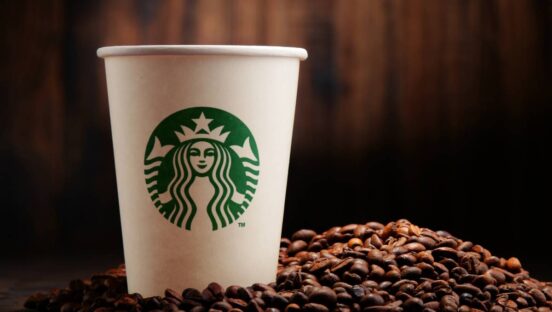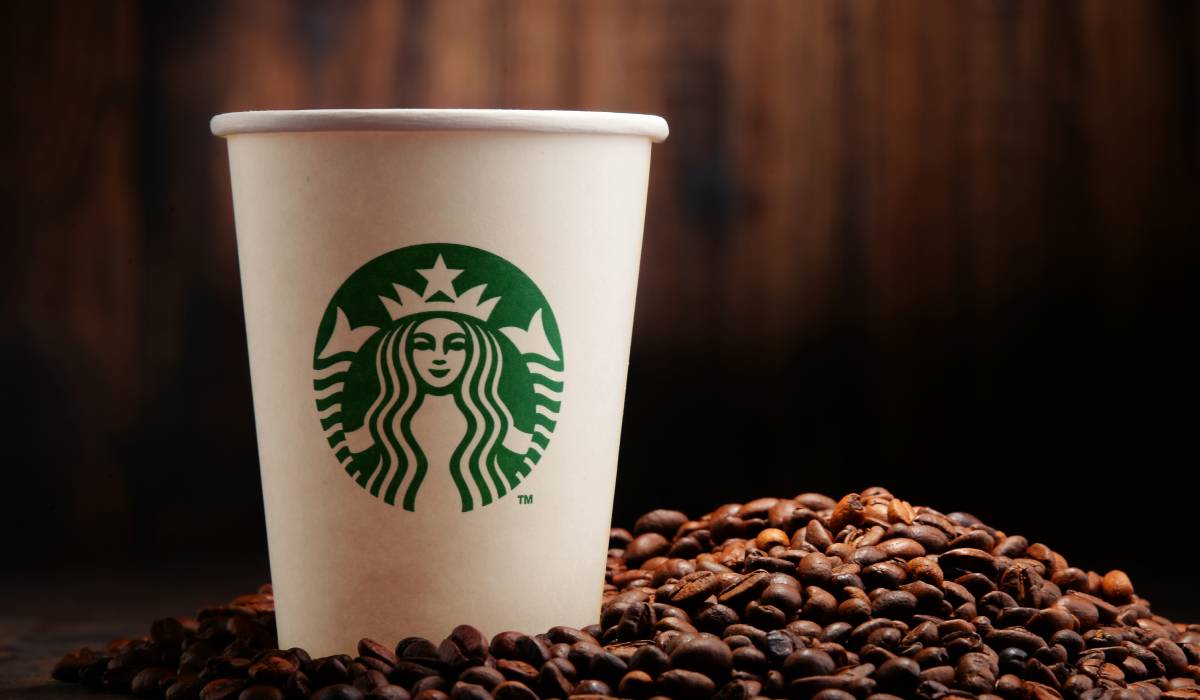U.S. consumers waging a boycott against Starbucks over the Israel and Palestine conflict seemingly impacted the coffee giant’s traffic toward the end of 2023.
CEO Laxman Narasimhan told analysts on Tuesday that events in the Middle East had an affect domestically, fueled by “misperceptions about our position.”
“I am deeply distressed by the violence shaking the region. As I have shared, Starbucks condemns violence against the innocent, hate, and weaponized speech,” Narasimhan said during the chain’s Q1 earnings call. “We are intensely focused on supporting our partners and the many other stakeholders affected by what is taking place. We have seen a significant impact on traffic and sales in the region and we are working with our licensees during this time to ensure the safety and well-being of our partners and our customers.”
Narasimhan said Starbucks had “great momentum” from August through October and exceeded expectations, but the growth rate faltered starting in mid-November. Traffic was in the negative single digits in November before it started to rebound in December.
That came after an incident in early October when its union, Starbucks Workers United, tweeted in support of Palestine. The now-deleted post read “Solidarity with Palestine!” and showed a photo of a bulldozer breaking through a security fence around Gaza, a city in Palestine. Starbucks filed legal action, arguing that the union’s use of the company’s likeness was causing confusion and that customers were erroneously tying the comments back to Starbucks.
READ MORE:
Starbucks Wants 55,000 Shops, and It Will Cut $3 Billion Along The Way
Howard Schultz Steps Down from Starbucks’ Board of Directors
Starbucks New CEO: We Will Deliver Connection
Following the tweet, chief partner officer Sara Kelly sent the following as part of a letter to employees.
“Shortly after October 7, Workers United posted a statement with an image of a bulldozer tearing down part of the Israel and Gaza border, reflecting their support for violence perpetrated by Hamas. Unfortunately, as violence against the innocent in the region continues to escalate, some people are mistakenly tying these remarks to us, because Workers United and its affiliates and members continue to use our name, logo and intellectual property. Starbucks unequivocally condemns acts of terrorism, hate and violence committed by Hamas, and we strongly disagree with the views expressed by Workers United, including its local affiliates, union organizers and those who identify as members of “Starbucks Workers United” — none of these groups speak for Starbucks Coffee Company and do not represent our company’s views, positions, or beliefs. Their words and actions belong to them, and them alone.”
After Starbucks took its stance, numerous social media users began calling for a boycott.
To boost traffic, the company sent targeted offers aimed at bringing guests into the loyalty program and used data analytics to incentivize specific rewards member cohorts. Additionally, the CEO said the chain was “leaning further into our brand, marketing and factual narrative, and social media to engage these audiences where they are.”
“We’ve already seen the positive impact of these new initiatives with our more occasional customers beginning to rebound in December,” Narasimhan said. “However, we continue to see further opportunity to welcome back our very occasional customers. We feel good about the trajectory over the course of the quarter, but it will take time for our plans to be fully realized.”
Starbucks also told analysts that an independent assessment found that it has not been union-busting. Since the first group of stores unionized in Buffalo at the end of 2021, both sides have taken legal shots at each other in courtrooms as the number of unionized shops has increased.
“I want to be clear in my view on the matter of unionization at Starbucks. We believe in a direct relationship with our partners, and in the 4 percent of our stores in the U.S. where our partners have chosen to be represented by a union, we are committed to finding a constructive path forward with those unions,” Narasimhan said. “I care deeply about our partners, their experiences and safety at Starbucks, and their futures.”
In the first quarter, North America and U.S. comps increased 5 percent, fueled by a 4 percent rise in average ticket and a 1 percent bump in transactions. Revenue grew 9 percent to $7.1 billion, and operating income rose 25 percent to $1.52 billion. North America store count increased to 17,931 as of December 31, representing 3 percent growth year-over-year.
Domestically, Starbucks’ most recent class of company units have AUVs of $2 million and ROIs of about 50 percent. The plan this year is to grow the domestic footprint by 4 percent on a base of more than 16,000 shops, including drive-thrus, which have grown by 500-plus stores since Q1 2023.
Regarding digital, mobile order and pay surpassed a record 30 percent mix in Q1. And despite pressured traffic, loyalty guests kept showing up. In the U.S., the company set a new mark with 90-day active rewards members growing 13 percent year-over-year to 34.3 million. The U.S. delivery business lifted nearly 80 percent year-over-year, driven by an expanded partnership with DoorDash. Currently, delivery represents 2 percent of all transactions. Leaning further into this channel, Starbucks is conducting a pilot with Gopuff to offer overnight delivery orders between 5 p.m. and 5 a.m. As part of this project, baristas prepare drinks inside Gopuff fulfillment centers and deliver the beverages to guests’ doors in 30 minutes.
“We have many strengths to build on and a clear plan to navigate this dynamic environment,” Narasimhan said. “While it will take time, we are confident we have significant headroom to further grow top line and bottom line in the long term and invest in our partners and the business by delivering strong shareholder returns.”








